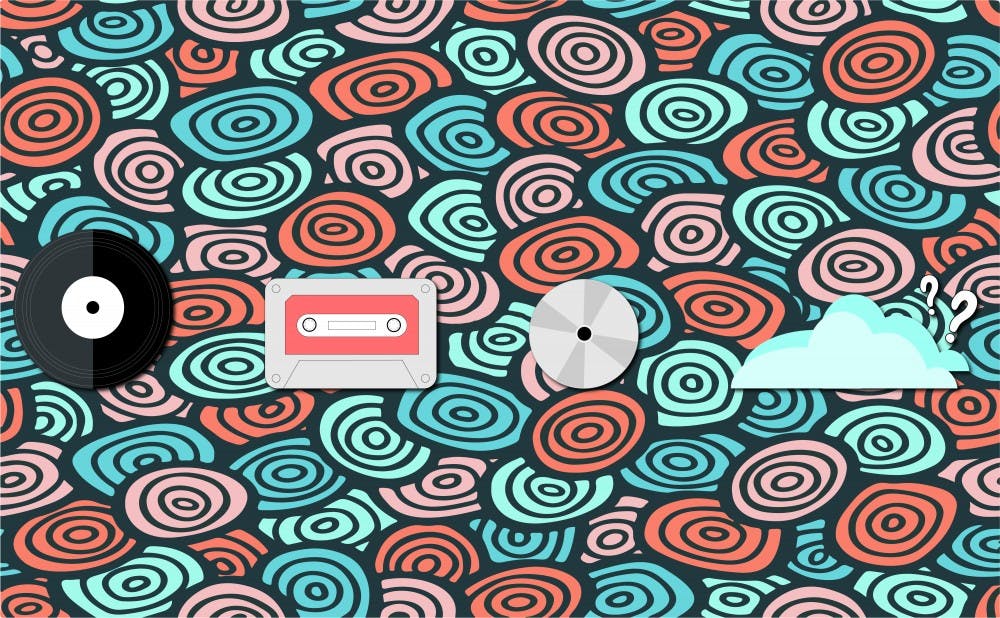For the sake of its own survival in an increasingly interconnected world, the music industry is adapting. After years of minimal earnings, the industry experienced substantial growth through a shift in how we listen to music. More and more people have access to streaming services like Spotify, Apple Music, Pandora and Soundcloud that offer nearly unlimited amounts of music. In fact, according to Spotify, the company has recently reached 170 million users, half of whom pay for premium service, a number that continues to grow. How will this transform the music itself and the musicians behind it?
Appealing to their ever-increasing audience, musicians are attempting to create music that will immediately draw in listeners. In fact, the music industry may even see a shift from albums themselves towards musicians released their expected best-selling singles since they now have a limited time to attract the listener before they decide to skip the song. There is also the potential for songs with a similar feel in albums, like Nicki Minaj’s “Queen,” rather than concept albums to keep listeners stuck on a single album for longer. All of these changes are simply to keep the musician’s numbers high in the new streaming world.
And the goal of boosting numbers influences to the music itself. For instance, Ed Sheeran produced multiple versions of his chart-topping hit “Shape of You,” which had all the appearances of a bid for higher streaming numbers. This attitude has the potential to destroy the quality of the music in exchange for a greater quantity.
This change in how we listen extends beyond simply the stylistic elements of the music. It entails changes for the musicians and what they are willing to sacrifice. Services like Spotify grant artists a tradeoff: greater recognition for fewer earnings. What were once considered “underground artists” are now getting acknowledgement on a much greater scale without having to sacrifice their sound. Spotify’s Rap Caviar playlist, working as a band manager for up-and-coming hip-hop artists, has launched the career of musicians who make the cut. Artists no longer need the backing of a label to succeed in the music industry, with artists like Frank Ocean even deciding to go independent. This has led to the rise of Soundcloud rappers and obscure indie bands, like Bazzi, Zara Larsson and Glass Animals, receiving ample recognition. The variety of platforms available to musicians allows them to experiment more with their sound.
Yet these services do not always provide fair treatment to their musicians. In fact, in the past few years, Spotify has been sued a number of times for shortcutting licenses and royalty payments to artists. Earlier this year, Spotify was sued for only having one of the two required licenses for over 10,000 listed songs.
Additionally, Spotify claims to be a non-interactive system, like Pandora, where users cannot choose songs to listen to. According to copyright codes, in order to be required to pay mechanical royalties, the company has to be distributing and replicating the music, making it an interactive service for its consumers. Whether or not Spotify falls under such jurisdiction will later be decided in further court cases, but until then Spotify will continue trying to dodge these allegations. Spotify’s opportunism is nothing new to the music world, but its methods leave artists with less money and further destroys the worth and value of the music produced. And all the money seems to go straight into the pockets of streaming services and labels, and practically nothing to the artists themselves.
Streaming services have also created a more cut-throat, competitive environment for the musicians. Other artists are producing covers of hit songs that, due to Spotify’s broad search engine, can be listed as a top choice, like Jocelyn Scofield’s cover of “Skyfall” which that had higher numbers than Adele’s for a short period.
Essentially, artists have begun profiting off of other musician’s work in more dramatic ways. Its effect now requires the consumer to navigate through multiple versions before finding the original song they were looking for. Musicians’ music also decrease in streams when they are being taken up by these covers.
Streaming services were initially considered a savior for the near-collapsing music industry. Previously, musicians often had to sacrifice their personal sound to attract the greatest number of listeners. Now, the genres are endless as the number of listeners expands and time spent listening to music grows. Could the many benefits outweigh the current and potential drawbacks? Only time will tell. But hey, at least we have more than enough cover songs and a well-curated Rap Caviar playlist to enjoy.
Get The Chronicle straight to your inbox
Signup for our weekly newsletter. Cancel at any time.

